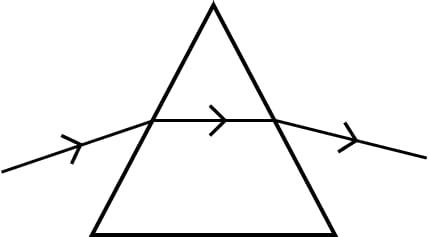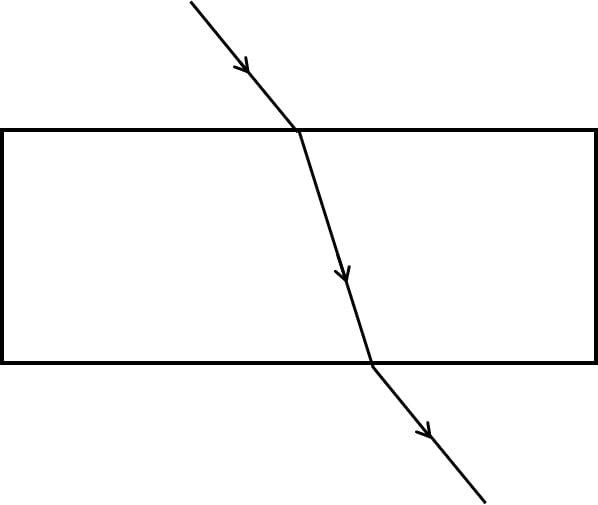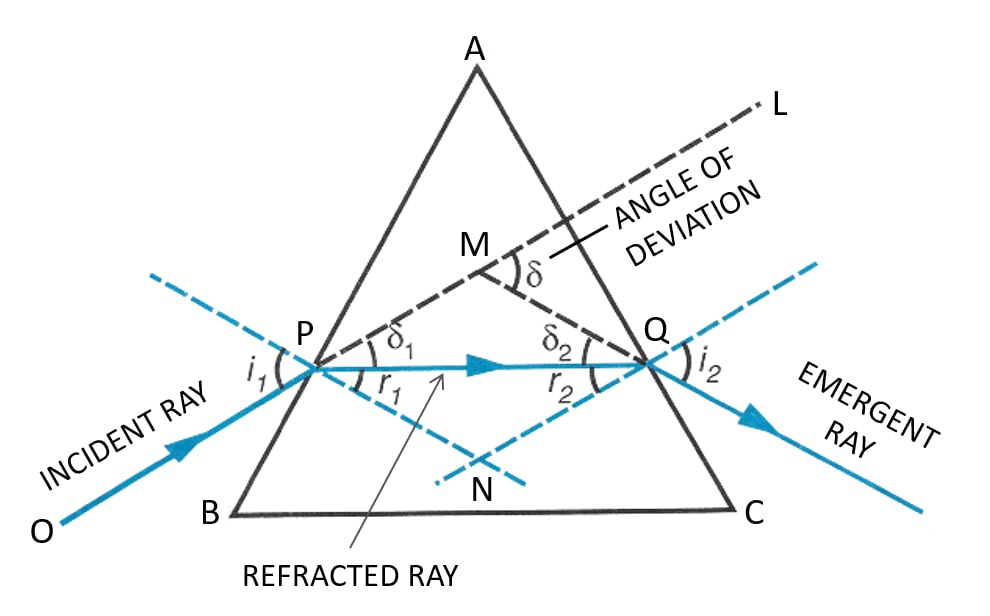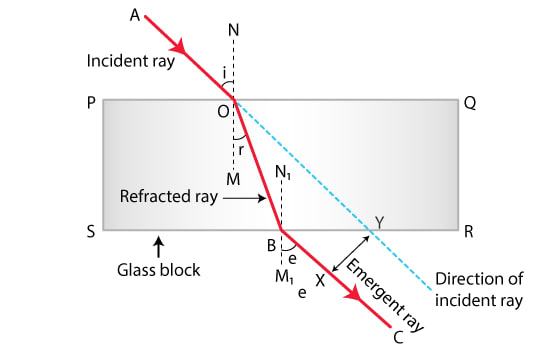Physics
The diagrams (a) and (b) in figure below show the refraction of a ray of light of single colour through a prism and a parallel sided glass slab, respectively.
(a)

(b)

(i) In each diagram, label the incident, refracted, emergent rays and the angle of deviation.
(ii) In what way the direction of the emergent ray in the two cases differ with respect to the incident ray? Explain your answer.
Refraction Plane Surfaces
104 Likes
Answer
(i) The below diagram shows the refraction of a ray of light of single colour through a prism with the incident, refracted, emergent rays and the angle of deviation properly labelled:

The below diagram shows the refraction of a ray of light of single colour through a parallel sided glass slab with the incident, refracted, emergent rays and the angle of deviation properly labelled:

(ii) In a prism, the refraction of light occurs at two inclined faces, so the emergent ray is not parallel to the incident ray but it is deviated towards the base of the prism. On the other hand, in a parallel sided glass slab, the refraction of light occurs at two parallel faces, so the emergent ray is parallel to the incident ray with a lateral displacement.
Answered By
75 Likes
Related Questions
How does the angle of deviation depend on refracting angle of the prism?
What is a prism? With the help of a diagram of the principal section of a prism, indicate its refracting surfaces, refracting angle and base.
What do you understand by the deviation produced by a prism? Why is it caused? State three factors on which the angle of deviation depends.
(a) How does the angle of deviation produced by a prism change with increase in the angle of incidence. Draw a curve showing the variation in the angle of deviation with the angle of incidence at a prism surface.
(b) Using the curve in part (a) above, how would you infer that for a given prism, the angle of minimum deviation 𝛿min is unique for light of a given wavelength.